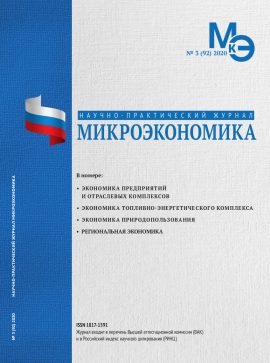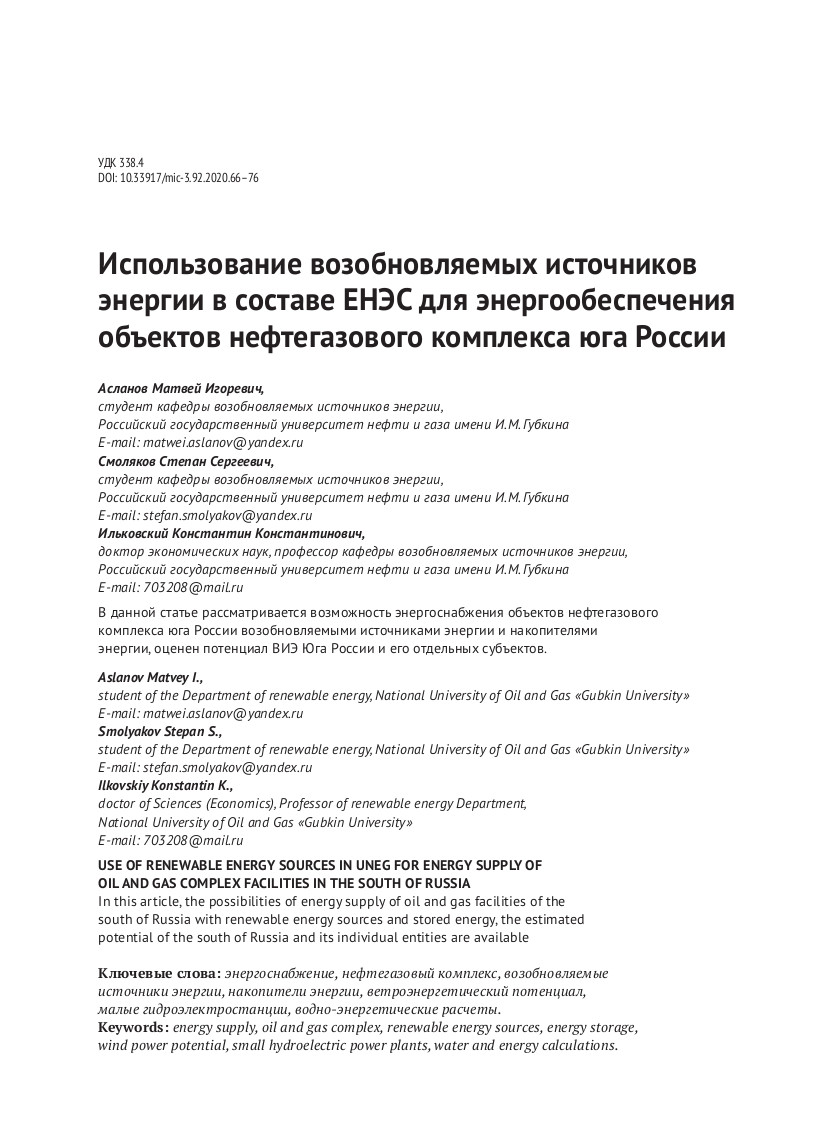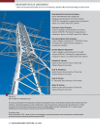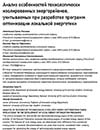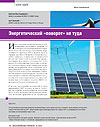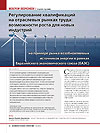Use of renewable energy sources in UNEG for energy supply of oil and gas complex facilities in the south of Russia
DOI: 10.33917/mic-3.92.2020.66-76
In this article, the possibilities of energy supply of oil and gas facilities of the south of Russia with renewable energy sources and stored energy, the estimated potential of the south of Russia and its individual entities are available.


